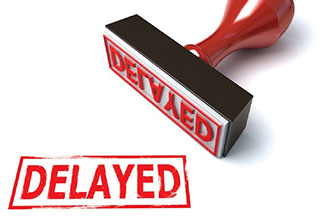So, you’ve got localized prostate cancer, you’ve decided to get it treated with either surgery or radiation, and you have steeled yourself to get on with it. You’ve been through a lot already: from the PSA results to coming to terms with the fact that you have prostate cancer. You did your research and made a plan with your doctor. Looking past the treatment and recovery, you’re looking forward to getting on with the rest of your life.
And now there’s a global pandemic.
At many hospitals around the country, non-emergency procedures have been bumped, including treatment for localized prostate cancer. And maybe you’re feeling a little stressed by this, or even panicked, thinking that cancer’s ticking away inside your body like a time bomb.
Hold up there, friend: a few weeks is not going to mean that your golden opportunity for a cure has closed. Let’s take a deep breath and think about this:
First, nobody, ever, has instant treatment for localized prostate cancer. The reason is that your prostate must heal after the biopsy: it’s riddled with tiny holes, like perforated paper. Thus, it’s easier to tear, which means it will be more difficult to remove that damaged tissue in surgery. Also, it’s inflamed; it’s not going to respond the same way to radiation, and it’s going to be a lot more difficult for a surgeon to operate. If there’s swelling, or if the tissue inside the prostate is adherent to the rectum – a common, temporary occurrence after biopsy – the surgeon may inadvertently leave cancer cells behind. The inflammation and punctures need to heal. That’s why you have to wait a minimum of 6-8 weeks after biopsy before you can get surgery or radiation.
“We have studied hundreds of patients who underwent surgery and evaluated the delay between diagnosis and cure,” says Johns Hopkins urologist Patrick Walsh, M.D. “With long follow-up, we found no significant difference in the 10-year cancer control rates of these men.” This is reassuring: “There is no immediate urgency to perform surgery after you are diagnosed with prostate cancer, especially if you have stage T1c disease and a biopsy Gleason score lower than 7.”
Second: every single statistic about men being cured of prostate cancer you’ve ever seen: those men all had to wait a few weeks or months, and they did very well. Many of those men got repeat biopsies, second opinions, and took their time to wrap their minds around the fact that they had cancer. They still had their cancer cured. If you were diagnosed by a change in PSA, here’s more good news: PSA screening has given us a 5- to 10-year lead time in diagnosis. It used to be that prostate cancer wasn’t diagnosed until it had grown big enough to be felt in an exam, or until it caused symptoms. You’re already ahead of the game!
Third: the average prostate tumor at diagnosis has been growing for years. Prostate cancer tends to grow very slowly within the prostate. It has a slow doubling time. So, even if it’s an aggressive cancer that needs to be treated, just remember: it has been in percolating away in there for a long time. It’s not going to suddenly take off and sprint out of the prostate in the next few weeks. You are going to get it treated; it’s just not exactly when you planned.
Two more things to consider: Stress is bad for the prostate. We discuss that more here. Worrying about not getting your treatment right away is not good for you. And finally, if you’re overweight, you may want to take advantage of this brief delay to lose a few pounds. The prostate is not terribly accessible in the best of situations, because of its location deep in the pelvis. If you have a lot of belly fat, it can make it more difficult for a surgeon to perform a good cancer operation, preserve urinary control, and preserve potency. “The best advice I can give an overweight man seeking radical prostatectomy is to lose weight through a healthy program of diet and exercise,” says Edward Schaeffer, M.D., Ph.D., director of urology at Northwestern University. “For those who are severely overweight, robotic surgery is extremely challenging and should be performed only by experienced surgeons. In men who are very overweight or morbidly obese, it can be very difficult for the anesthesiologist to ventilate the lungs because of the weight of the abdomen pressing on the diaphragm.” If this applies to you, your best bet – besides having an experienced surgeon – is to take this time to change your diet and get some exercise. For more on general wellness, download our wellness guide and check back on PCF.org for upcoming resources.
Note that not all prostate cancer is localized disease, and some men may need to begin treatment promptly. If this applies to you, talk to your doctor about options – perhaps you can travel to another medical center (by car) that can treat you sooner. If you are in the middle of radiation or chemotherapy, you may not have the flexibility to postpone. Your care team will do everything they can to continue your cancer treatment while keeping you safe from infection, so don’t hesitate to ask questions.
For more information visit pcf.org

